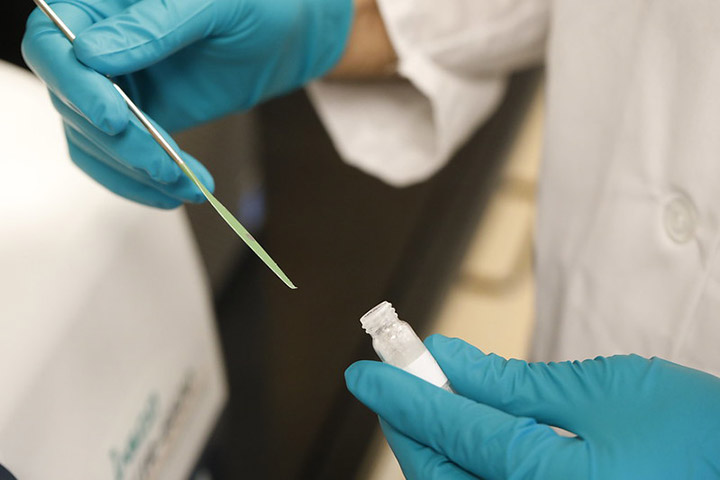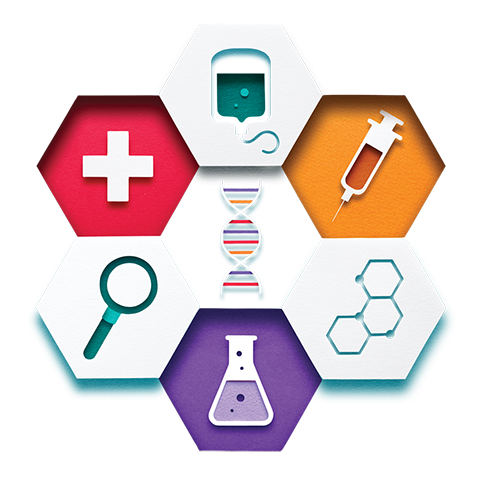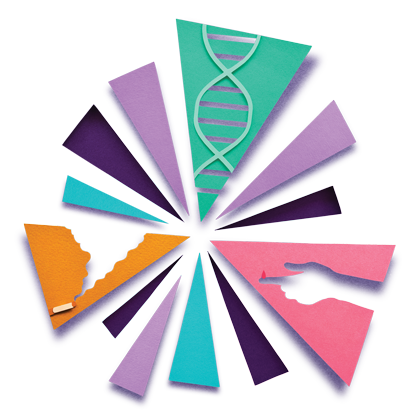Progress and Promise—Research in 2023

CBP Laboratories and Scientific Services (LSS); Flickr
There is something extremely satisfying about taking a look back on the past year’s accomplishments, especially in the areas of research and patient treatment.
That satisfaction stems from positive progress in improving the lives of patients. For those with pancreatic cancer. the message is clear: a pancreatic cancer diagnosis today is very different from one made 20 years ago, when there were few options to treat advanced disease and little knowledge about the basic biology of the disease itself.
The past year saw some rapid progress in several areas of research and treatment. Researchers are confident they are on the right track, but also very aware that patients need more options, especially for advanced disease.
Here are just some of the highlights from the past year. As always, Let’s Win has covered several of these advances in depth. We look forward to continuing to provide you with the latest information on pancreatic cancer in 2024.
Immunotherapy Advances
Combination approaches using vaccines with more general immunotherapies are beginning to show their potential in pancreatic cancer. Two vaccine approaches in particular are showing this progress and promise.
The highly reported mRNA pancreatic cancer vaccine opened its phase II clinical trial in August 2023; the trial will soon be open at 80 locations around the world. The results of the phase I study, published in Nature in May, showed that half of the 29 pancreatic cancer patients who received a personalized mRNA cancer vaccine after surgery did not have a recurrence of the tumor a year and a half later.
A team from Johns Hopkins (Baltimore, Maryland) found that the GVAX pancreatic cancer vaccine plus two types of immunotherapy showed much longer survival times in a small study. The study is part of an ongoing platform trial that launched in 2015, focusing on immunotherapy treatments before surgery (neoadjuvant) and after surgery (adjuvant) for patients with pancreatic cancer. The platform format enables researchers to use data generated by the trial to advance development of immunotherapies for pancreatic cancer within the same study.
Drugs Targeting KRAS
The emergence of drugs that can inhibit KRAS, the driver of 90 percent of all pancreatic cancers, gave hope for a new era of pancreatic cancer treatment. While the first KRAS drug showed promise in pancreatic cancer, it targeted mutations that are only present in a small number of pancreatic cancer patients. At the 2023 European Society for Medical Oncology (ESMO) Congress, researchers saw the first data from a drug that can target all mutant forms of KRAS in pancreatic cancer. The data look promising, with an 87 percent disease control rate and 20 percent objective response rate in pancreatic cancer patients.
There was also an explosion of preclinical work to understand the mechanisms of response and resistance to this new class of drugs, as well as potential combination approaches to expand the effectiveness of this treatment.
Early Detection and Identifying Risk
The CAPS-5 study and other surveillance programs have shown that we can find pancreatic cancer early, if we know which patients could benefit. The issue, however, is that most cases of pancreatic cancer occur in individuals with no known risk factors. AI approaches have shown some promise. For example, research published in May 2023 in Nature Medicine suggests that AI screening of large groups of patients beginning with their medical records could make earlier diagnosis of pancreatic cancer possible. That, in turn, could lead to earlier and more effective treatment of the disease. In the analysis, an AI tool successfully pinpointed people at elevated risk for pancreatic cancer by looking back at their medical records, finding evidence of heightened risk up to three years before they were diagnosed.
Advances in Chemotherapy
Work is ongoing to understand how best to use chemotherapy in pancreatic cancer.
Results from the NAPOLI-3 study in first-line metastatic patients showed improved response in patients treated with NALIRIFOX (a combination of drugs including liposomal irinotecan, brand name Onivyde) compared to gemcitabine plus nab-paclitaxel. Let’s Win reported early results of the multisite NAPOLI-3 trial in December 2022. At the American Society of Clinical Oncology (ASCO) GI Symposium, updated results were shared. According to this data, combination treatment with liposomal irinotecan, 5-fluorouracil/leucovorin, and oxaliplatin (NALIRIFOX) continued to outperform treatment with nab-paclitaxel and gemcitabine in patients with metastatic pancreatic cancer.
At ESMO, a trial called JCOG1611-GENERATE compared gemcitabine plus nab-paclitaxel with FOLFIRINOX in first-line metastatic disease. Results showed slightly better survival with gemcitabine plus nab-paclitaxel, along with better safety, compared to FOLFIRINOX. This finding underscores that more work is needed to understand how best to use available chemotherapies as well as the fact that researchers need better tools to predict the patients who are most likely to respond to specific therapies, and then get those patients on the right therapy at the right time.
The right therapy at the right time is the overarching theme of the PASS-01 trial, funded by the Lustgarten Foundation, Stand Up To Cancer, and Pancreatic Cancer Canada. The study is comparing how patients respond to the two standard-of-care regimens, but also including deep profiling of each patient to see if doctors can predict response using genetics, genomics, tumor features, or by profiling organoids. PASS-01 is expected to complete enrollment early in 2024.
Sharing Knowledge
Two large meetings, the ASCO GI 2023 conference and the American Association for Cancer Research (AACR) Special Conference on Pancreatic Cancer, continued to attract record numbers of researchers who come together to learn about the latest developments in research and treatment. The Lustgarten Foundation hosted their inaugural pancreatic cancer research symposium, Seeing Beyond. Seeing Beyond sessions were moderated by world-renowned pancreatic cancer experts David Tuveson, M.D., Ph.D., Director of the Cold Spring Harbor Laboratory Cancer Center and Lustgarten Chief Scientist, and Elizabeth Jaffee, M.D., Deputy Director of The Sidney Kimmel Comprehensive Cancer Center at Johns Hopkins and Lustgarten Chief Medical Advisor.
Let’s Win had a strong year in continuing its efforts to bring the latest news about research and treatment to better help patients and their loved ones make more informed decisions about care.
Our platform sees more than 15,000 unique visitors every month. Our updated Spanish platform, launched in July, now has more than 5,000 visitors a month and is growing rapidly. We bolster our efforts by partnering with such organizations as the National Alliance for Hispanic Health and the Basser Center for BRCA for webinars focusing on clinical trials, mutations, symptoms, risk factors, and more. Our monthly PancChat, hosted on X (formerly Twitter), continued its tradition of lively discussions on myriad topics related to both patient self-care and disease treatment. These included BRCA mutations, immunotherapy, pancreatic enzymes, and health disparities. An exciting slate of chats is under development for 2024.







